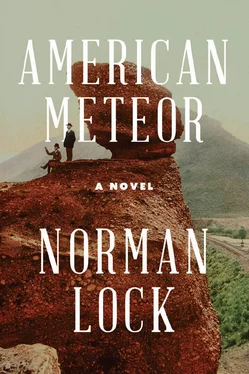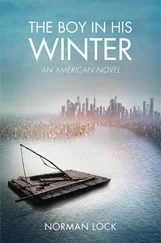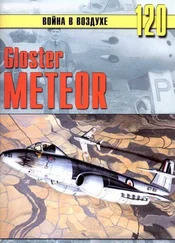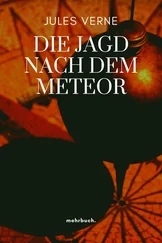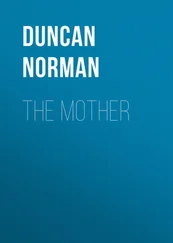That night, Osler continued in a talkative vein. Maybe he, too, was scared. Maybe he was awed by the presence of death or the absence of life (they’re not exactly the same thing). Maybe he knew that, after tomorrow, he’d never see me again. He could tell me his thoughts and admit feelings he never would to the other miners. Men seem cruelest when they are in one another’s company for any length of time. He said that he and Frank had come west the year before and gotten off the train at Omaha. They hadn’t been in town long when Frank got stabbed coming out of a saloon.
“By an Indian wearing a Union blue coat.”
“With sergeant’s stripes?” I asked. If I’d been a rabbit, my ears would have tensed in alarm.
“Yes. Know him?”
“I saw him around.”
The most inconsequential thing can forge a chain of fatality: Whitman, Grant, Lincoln, Durant, Jackson, George Osler, Frank, a dispossessed, demoralized, and rum-soaked Indian — all connected by a sack coat. And that field of bones. is it connected to the firmament of stars? Whitman knew the truth: Everything is pitched to a mystic chord. Though not always sweetly. Such are the thoughts that come to a man in the night.
“What happened to the Indian who stabbed your brother?”
“I put a bullet in him,” Osler replied.
I lay in my bedroll and watched the moon climb up a corner of the sky and start down the other side. The stars composed their ancient stories, told each night to an earth that suffers under our dominion. The bones of nine hundred Indian ponies shone under this same sliver of a moon, near the Washita River in Indian Territory, after having suffered natural processes to turn them into a ruin interesting to photographers. In November, Custer had ordered the ponies shot after his 7th Cavalry killed the Cheyenne while they slept beneath white flags raised above their tents.
Custer. He would fester in me, like a dirty splinter.
The wind had lain down with Osler and me. Now and again it rose to hymn the night, which is, as anyone knows who’s slept outside in it, holier than the common day woven of distractions. If one turned out, I decided to send a print of the killing field to Grant to remind him of what death looked like, stripped of glamour and rhetoric. Sitting in his White House, he might have forgotten “the stark forms of existence.”
I know what you’re thinking, Jay. Your disapproval is written all over your face. Bear with me awhile longer, and then you can have your say.
Omaha, Nebraska, June — September 1870
Now that the Union Pacific was finished, Durant had no more need of the old Lincoln parlor car or its steward. I burned my white uniform and became William Jackson’s full-time assistant. I let my hair grow long and wore a beard like his, and I didn’t give a damn whether my fingernails were clean or not. We lived on board the “photographic car,” fitted out with berths, a trestle table, and upholstered chairs abandoned when a tent town erected along the right-of-way went bust. There was also a darkroom. I became skilled at printing negatives, retouching albumen prints, and hand-coloring stereopticon cards of the Wild West. Ordered by a Boston firm, the cards gave voyeurs back east something to gape at. It was hack work and oftentimes despicable, but Jackson depended on its income to finance his excursions.
While he was off taking pictures of Indians, I worked on the Boston job and on an album of prints for Durant, commemorating the Omaha depot. When I finished it, he handed me the camera’s bill of sale. I was nearly twenty-two and considered myself disenthralled at last, as Lincoln would have said. I’ve often wondered whether he would have advocated extermination, like Custer and Phil Sheridan; salvation, like the missionaries; or starvation, like Sherman, as the final solution to the Indian problem. (It was by Lincoln’s order that the Northern Ute were driven out of the Provo Valley onto a reservation.) Frankly, I didn’t see how to pacify them. We couldn’t pack them off to Africa the way we wanted to do the blacks. The Indians might have had good reason to kill us, but we couldn’t just doff our hats and offer them our scalps.
In June 1870, Durant sent Jackson to Colorado Territory to photograph the linking of the Denver Pacific to the new transcontinental railroad. Afterward, Jackson traveled by stage-coach the hundred miles to Denver City, where he’d been commissioned to make portraits of the mining millionaires Tabor, Croke, Patterson, and Campbell. They paid him, as they paid for everything, ostentatiously.
“Each handed me a hundred-dollar gold piece,” Jackson told me later. “Then each one lit a cigar with a hundred-dollar bill. I don’t think they meant to humiliate me, only to prove to one another that they were too rich to consider such sums anything more than a trifle.”
The money, along with what the recent stereopticon order brought in, would be enough to restock our plates and chemicals and to allow us to live like lords through the coming winter. Or so I thought. Jackson went out and got himself bathed, shaved, and massaged, replenished his supply of dried apricots, and bought a brand-new wool union suit for each of us at Omaha Dry Goods. The town had grown prosperous, and Geissinger, the store’s squint-eyed owner, had hired a painter to add emporium in gold letters to his sign. I wondered what had possessed Jackson to buy me new underwear, but I said nothing, knowing how much he liked to appear mysterious. Jackson would have made an excellent shaman or a Moslem fakir, depending on the hemisphere.
“We’re going to take a trip up into northern Utah,” he said finally, chewing on an apricot.
I waited for him to elaborate, but he got into his berth without another word and shortly began to snore — the ends of his ample mustache riffling with each exhalation. I pushed a chair into the late-afternoon light and read awhile in Leaves of Grass —the passage beginning “O something pernicious and dread!/ Something far away from a puny and pious life!” I never failed to find a sentiment in Whitman’s book that accorded with my own life and aspirations. I knew people — men and women both — who would open the Holy Bible and stab blindly at the page with a finger to find an answer in times of trouble and crisis. I would use his Leaves , which is, I believe, also a holy book. Doesn’t he say in it about the grass “I guess it is the handkerchief of the Lord”?
Jackson woke from his nap, and we sat down to eat at the trestle table where we worked on our negatives and prints. I heated coffee and some corned beef and potatoes on the spirit lamp, filled our mugs, and flung wet gobs of hash into tin bowls. We ate in silence. Finished, Jackson pushed his bowl aside, sipped his coffee, and told me at last what he had in mind.
“I want to photograph a sorry ragtag band of Northern Ute,” he said. “To get the bad taste of Denver millionaires out of my mouth.”
I thought of the heavy woolen underwear and began to worry.
“When?” I asked, already knowing the answer.
“If we leave soon, we can get there before the snow piles up in the passes.”
We could have traveled in relative comfort on the Utah Central from Ogden to Salt Lake City, but Jackson wouldn’t hear of it. He was sick of railroads, which, in his opinion, had tamed things, and wanted to surround himself with “the haggard beauty” of the Wasatch Range when the snow began to fall.
“Can’t we go in the spring?”
He shook his head.
“Why not?”
“I want to see the Indians at their most miserable,” he said.
The Utah Valley, October 1870–April 1871
The Ute gave their name to Utah, and whatever else they had of value (they owned nothing, ownership being an alien concept) — land, timber, artifacts, buffalo, elk, antelope, and deer — Utahans took. So it went anywhere Indians had, by right of prior possession, what emigrants coveted. The taking proved easy; they swarmed over Indian lands, regardless of treaties made with the “white fathers,” and stole or killed what they liked. When the Indians objected, the squatters complained to the newspapers and Congress, and the army herded the Indians onto wastelands to the sentimental drinking tune of “Garry Owen.” If they became indignant and scalped a few settlers or prospectors out of pique, the army retaliated by killing their men, women, and children and the millions of bison the Indians relied on for food, clothing, shelter, and spiritual well-being. Some say there were as many as 75 million buffalo on the Great Plains before we hunted them nearly to extinction to feed railroad workers toiling west, to profit from their bones and hides, to satisfy the itch to kill, and — most important — to annihilate the Lakota and the Cheyenne. Unable to defeat them, the army eventually starved them into submission.
Читать дальше
